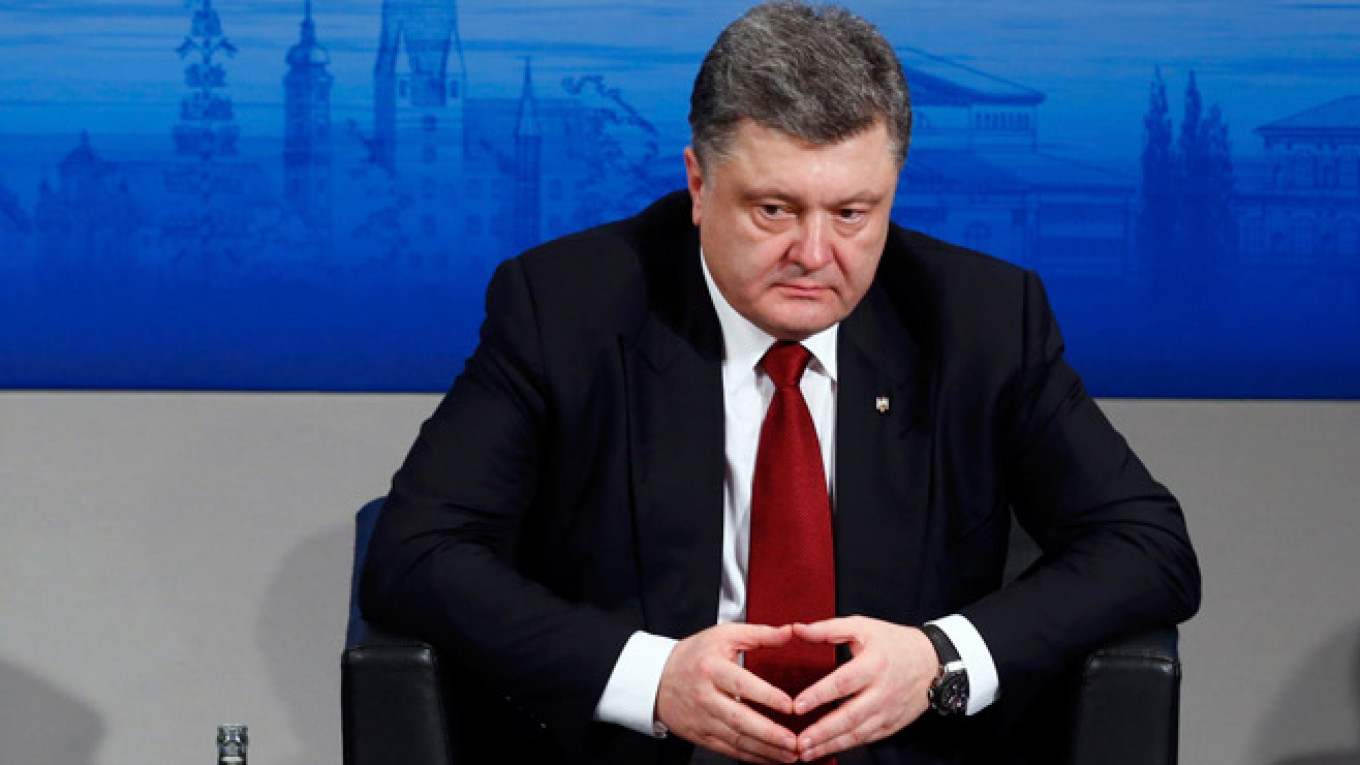Try selling a peace deal to your people when your country has been invaded, part of your territory has been annexed, and, after months of bitter fighting, you are being asked to cede a bit more ground as the price to pay to stop the conflict.
This is the choice facing Ukrainian President Petro Poroshenko after his long discussions in Kiev on Feb. 5 with German Chancellor Angela Merkel and French President Francois Hollande.
A new peace deal would consist of a broad demilitarized zone plus greater autonomy for parts of eastern Ukraine.
If Russian President Vladimir Putin agrees to this latest plan, Poroshenko would be very hard-pressed to convince his own people of the merits of the deal.
Merkel publicly acknowledged the Ukrainian president's vulnerability. "Poroshenko ran a big political risk in accepting the Minsk agreement [to end the fighting], in accepting the status of Donetsk and Luhansk," she told participants attending the 2015 Munich Security Conference.
Over the weekend of Feb. 7 to 8, officials were working on the details of the new peace plan, with four-way talks between the leaders of France, Germany, Russia and Ukraine expected on Feb. 8.
The proposals are based on the Minsk Protocol, a cease-fire accord that was signed in September 2014 between Russia, Ukraine, separatist leaders and the Organization for Security and Cooperation in Europe (OSCE). Since then, the cease-fire has been repeatedly broken.
Furthermore, the OSCE has been unable to systematically monitor the withdrawal of heavy weapons from special zones established by the Minsk accord. Nor has the organization been able to monitor the flow of weapons from Russia to the separatists.
Diplomats said a broader special zone could give the OSCE monitors greater safety and more of a chance to supervise any new cease-fire. But such a plan would also mean that pro-Russian separatists could consolidate the territory they have gained over the past few months.
Speaking at the Munich Security Conference on Feb. 7, Poroshenko ruled out making any further territorial concessions.
Later, when asked by reporters about the details of the peace plan, Poroshenko sidestepped the question. Instead, he repeated his call for military assistance. Diplomacy, he said, had to be backed up by strong defenses."The stronger our defense, the more convincing our diplomatic voice," he said.
Judy Dempsey is senior associate and editor-in-chief of Strategic Europe at Carnegie Europe.
A Message from The Moscow Times:
Dear readers,
We are facing unprecedented challenges. Russia's Prosecutor General's Office has designated The Moscow Times as an "undesirable" organization, criminalizing our work and putting our staff at risk of prosecution. This follows our earlier unjust labeling as a "foreign agent."
These actions are direct attempts to silence independent journalism in Russia. The authorities claim our work "discredits the decisions of the Russian leadership." We see things differently: we strive to provide accurate, unbiased reporting on Russia.
We, the journalists of The Moscow Times, refuse to be silenced. But to continue our work, we need your help.
Your support, no matter how small, makes a world of difference. If you can, please support us monthly starting from just $2. It's quick to set up, and every contribution makes a significant impact.
By supporting The Moscow Times, you're defending open, independent journalism in the face of repression. Thank you for standing with us.
Remind me later.






